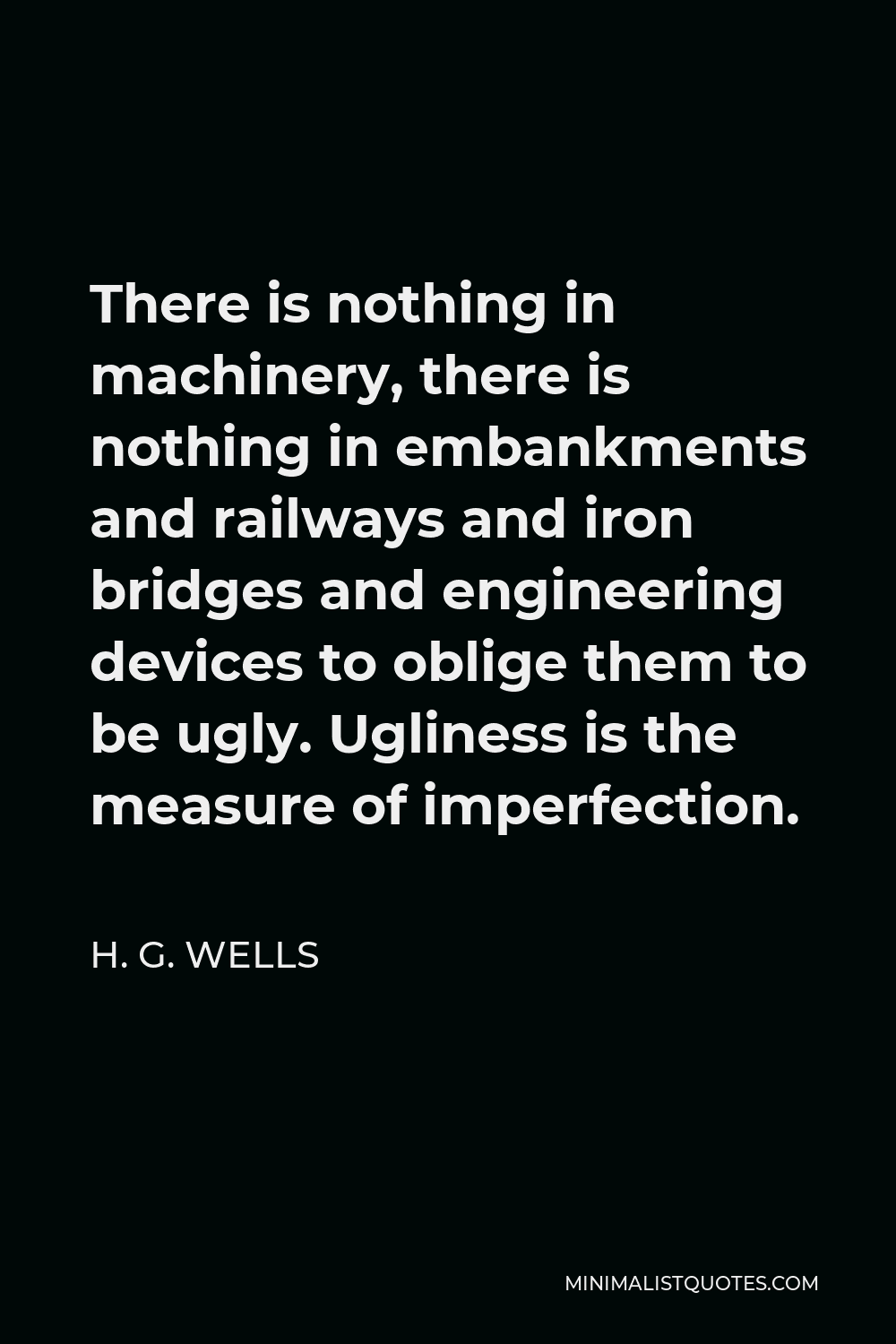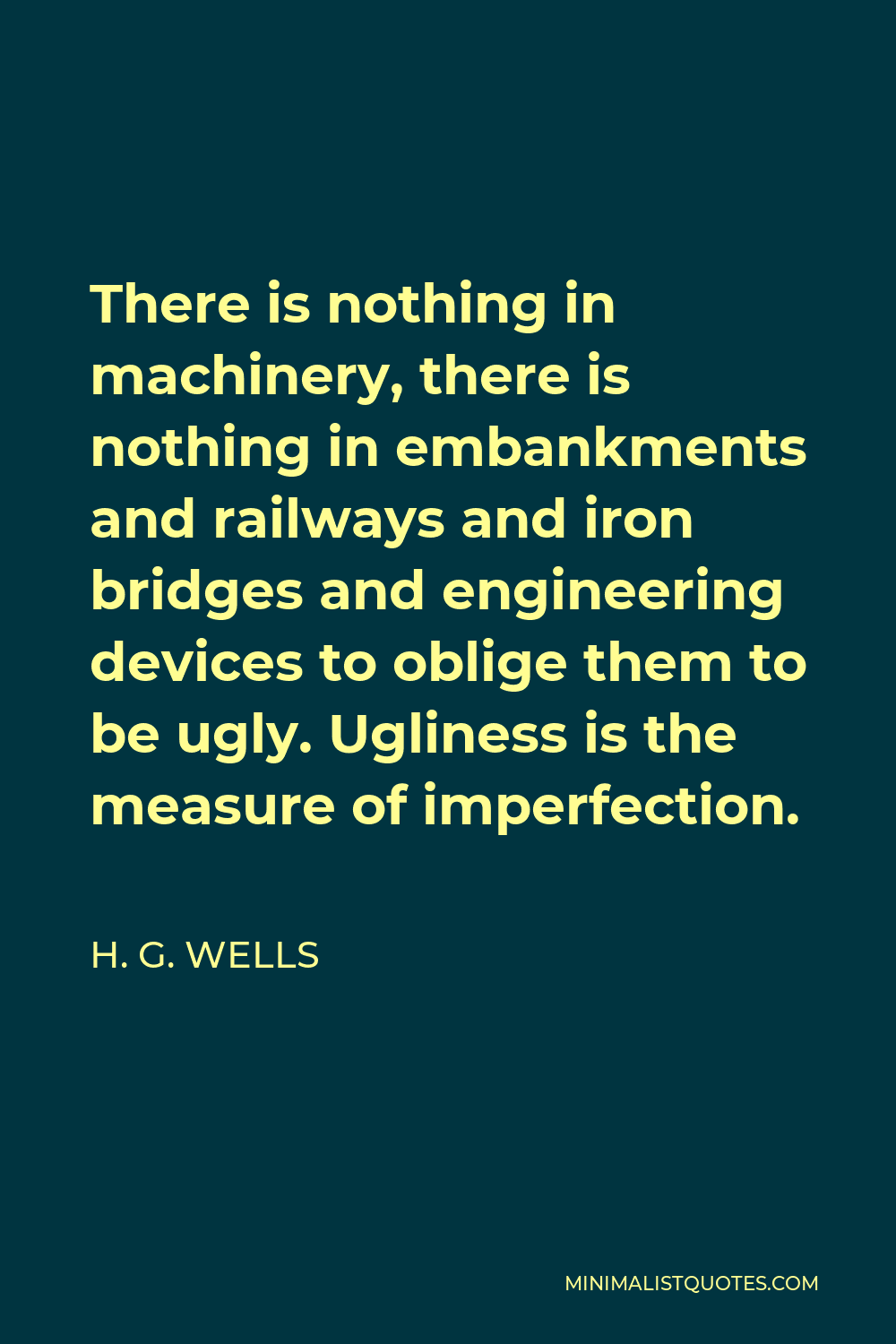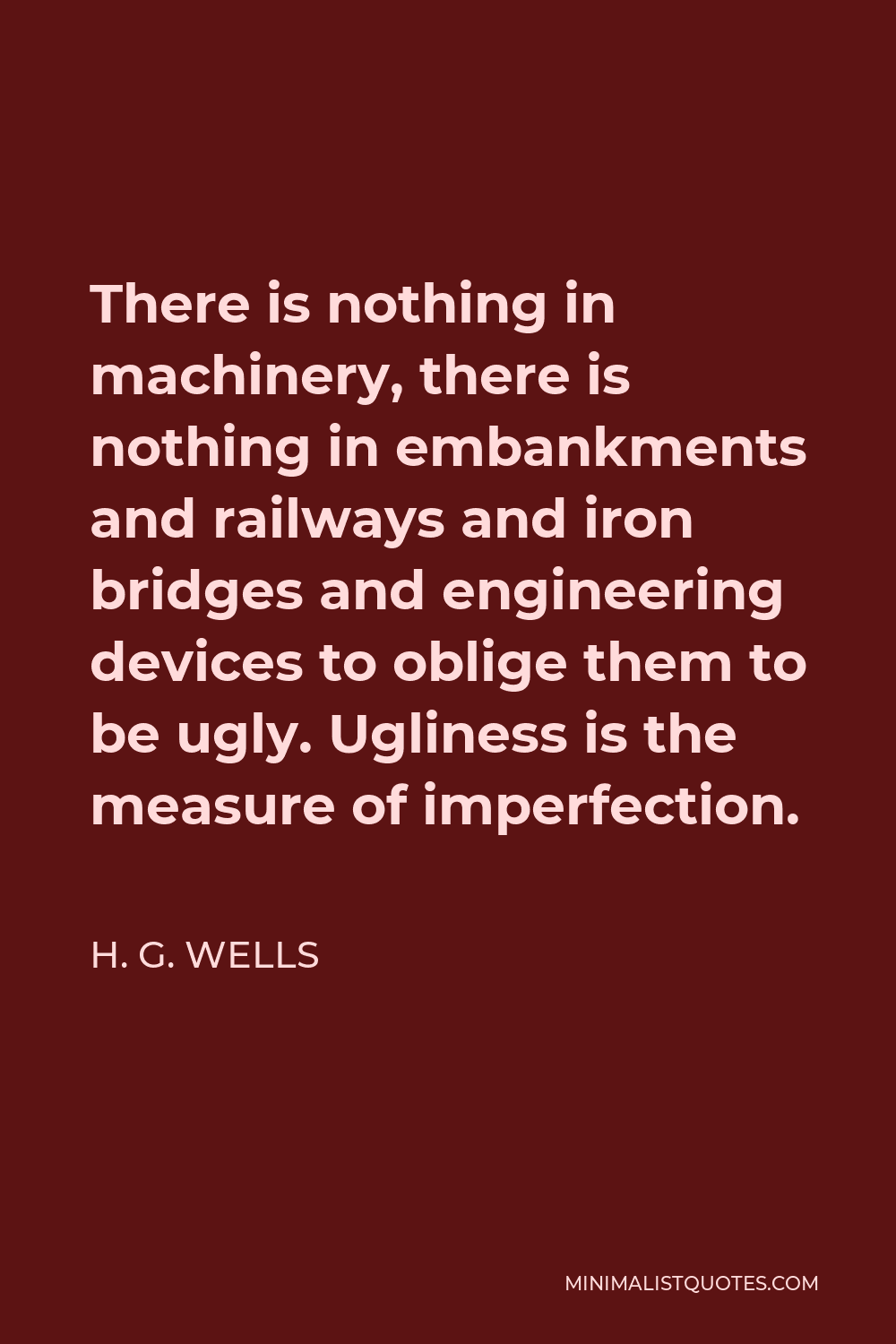It is not reasonable that those who gamble with men’s lives should not pay with their own.
H. G. WELLSThere is nothing in machinery, there is nothing in embankments and railways and iron bridges and engineering devices to oblige them to be ugly. Ugliness is the measure of imperfection.
More H. G. Wells Quotes
-





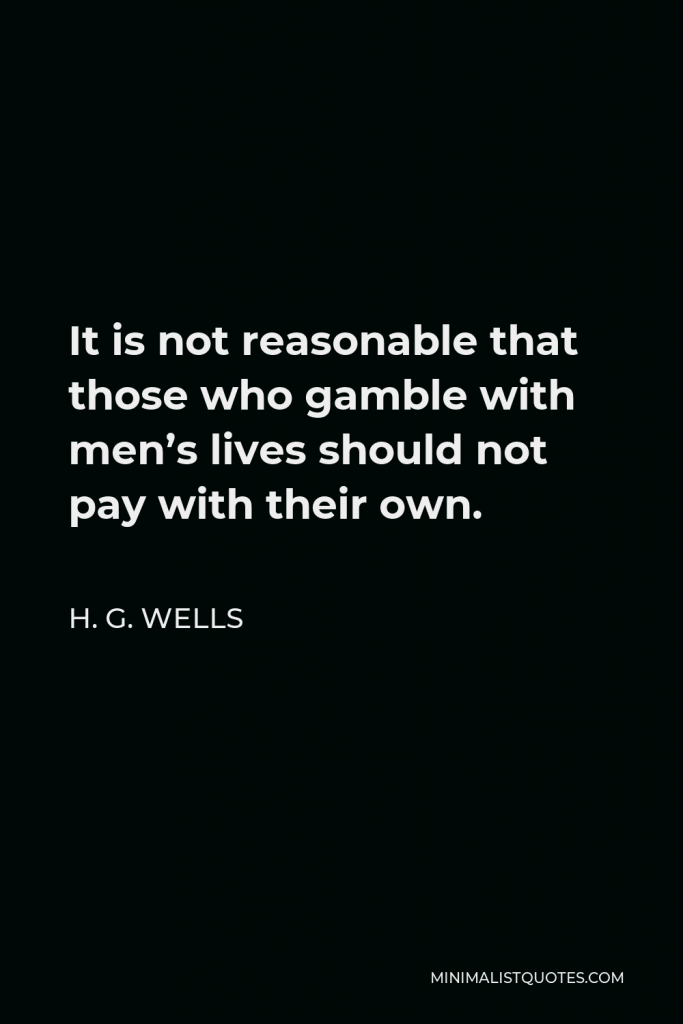

-







History is a race between education and catastrophe.
H. G. WELLS -







Our true nationality is mankind.
H. G. WELLS -





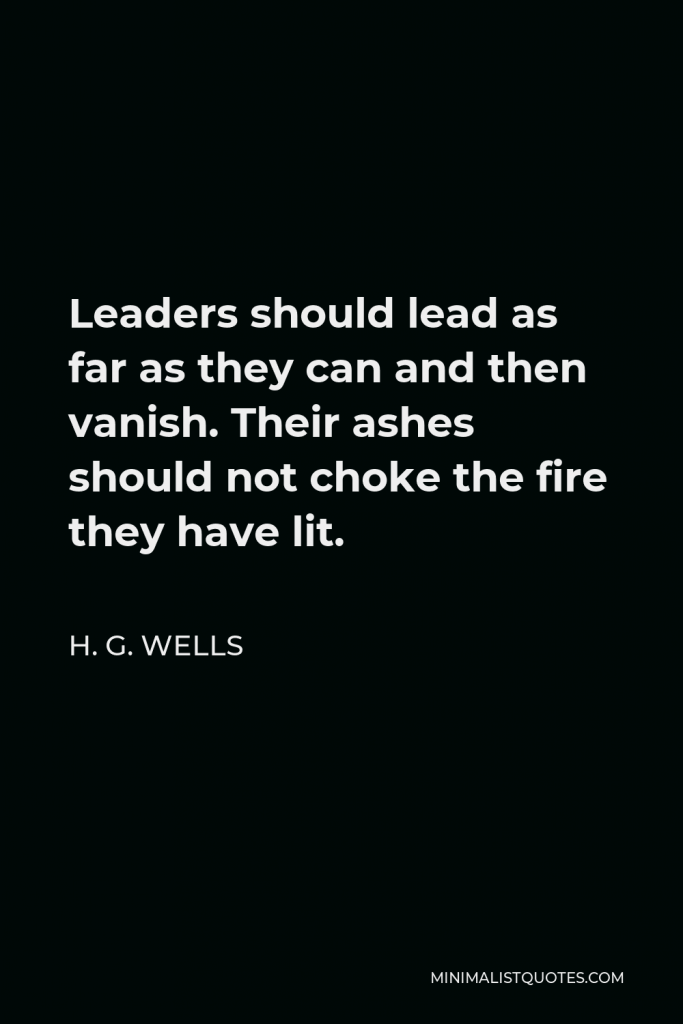

Leaders should lead as far as they can and then vanish. Their ashes should not choke the fire they have lit.
H. G. WELLS -







Advertising is legalized lying.
H. G. WELLS -







The crisis of today is the joke of tomorrow.
H. G. WELLS -





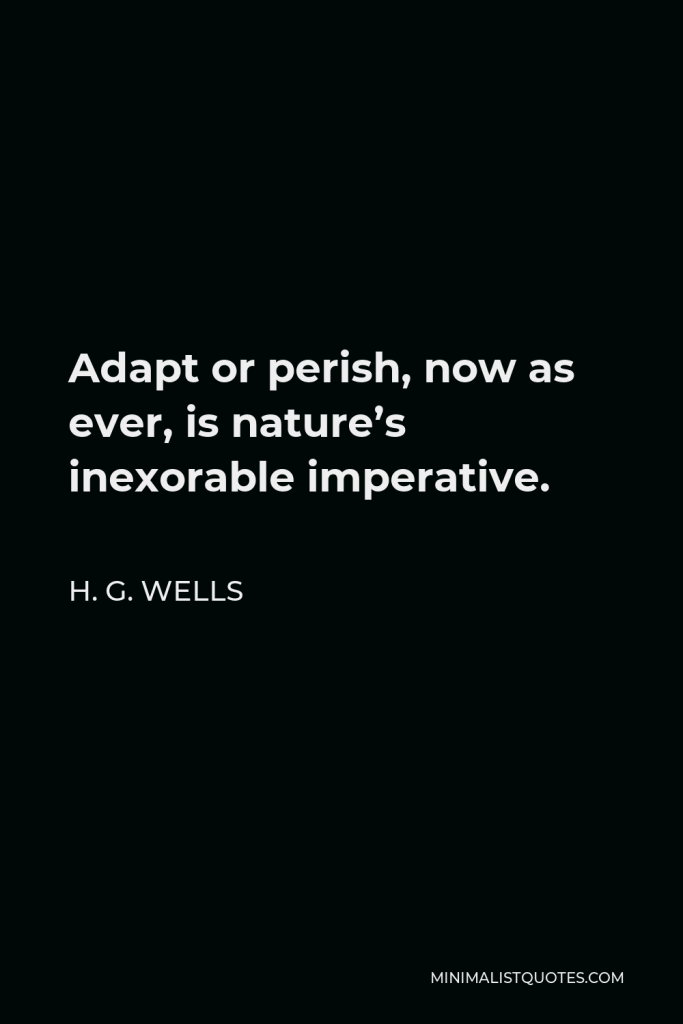

Adapt or perish, now as ever, is nature’s inexorable imperative.
H. G. WELLS -





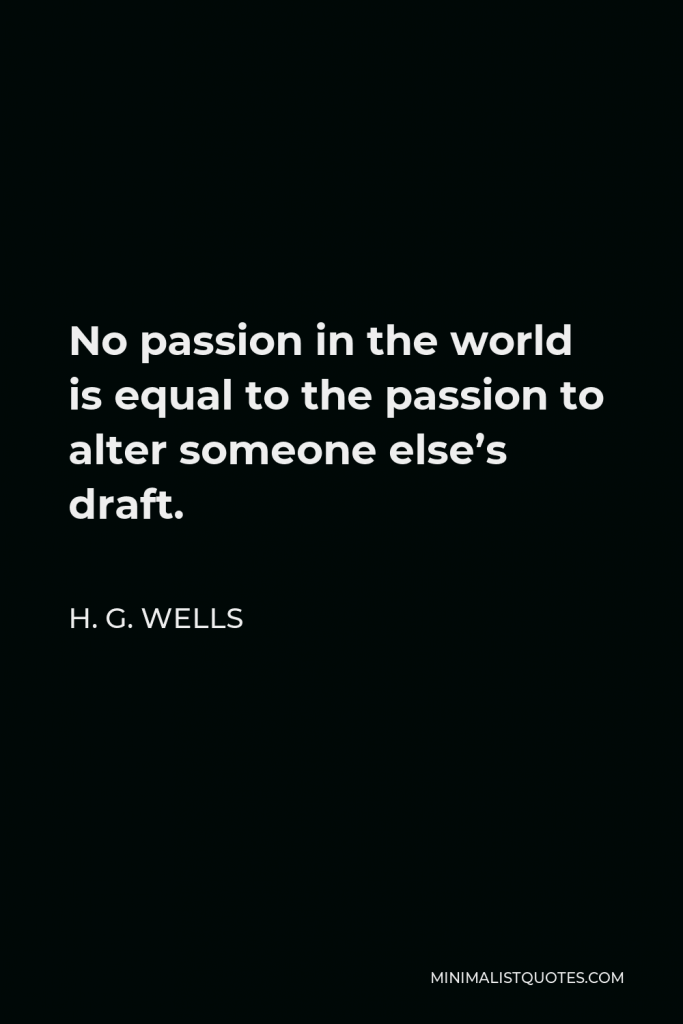

No passion in the world is equal to the passion to alter someone else’s draft.
H. G. WELLS -





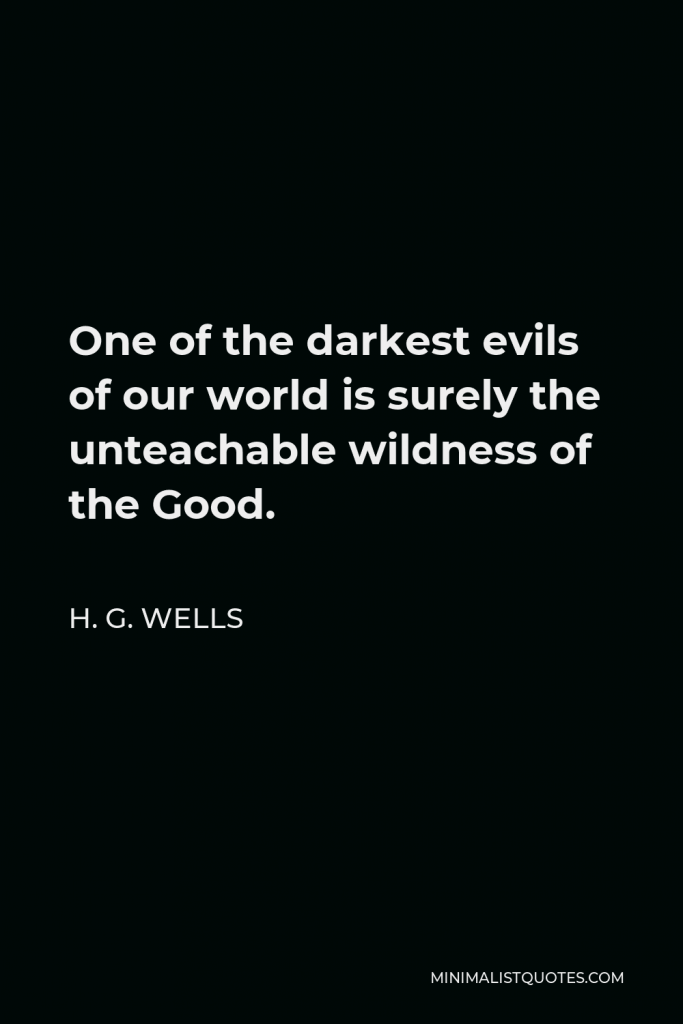

One of the darkest evils of our world is surely the unteachable wildness of the Good.
H. G. WELLS -





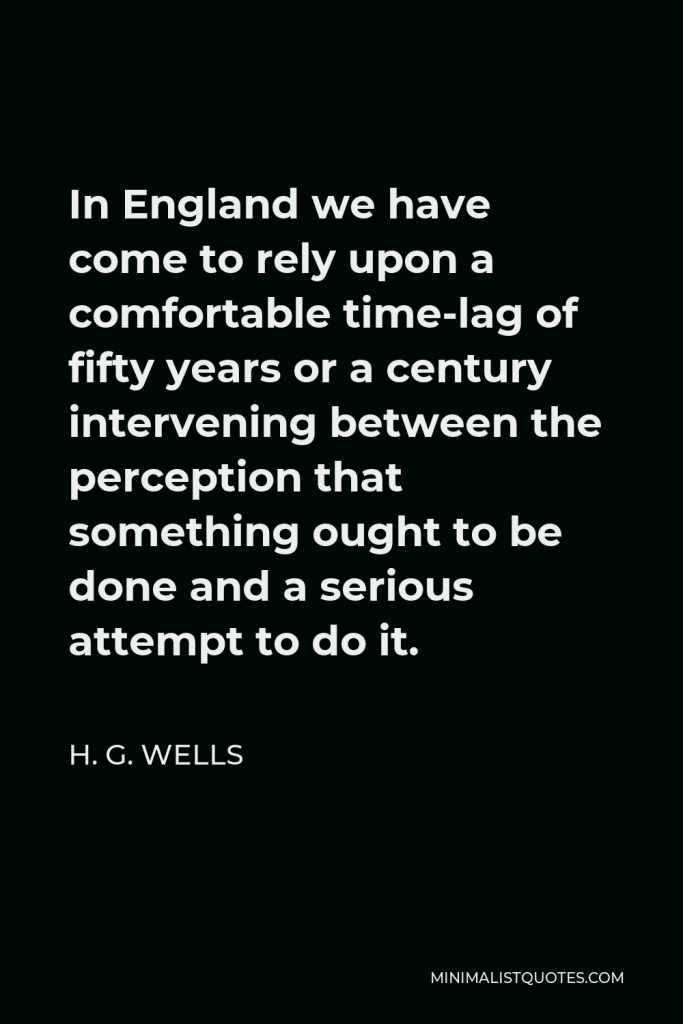

In England we have come to rely upon a comfortable time-lag of fifty years or a century intervening between the perception that something ought to be done and a serious attempt to do it.
H. G. WELLS -







The path of least resistance is the path of the loser.
H. G. WELLS -







Human history in essence is the history of ideas.
H. G. WELLS -





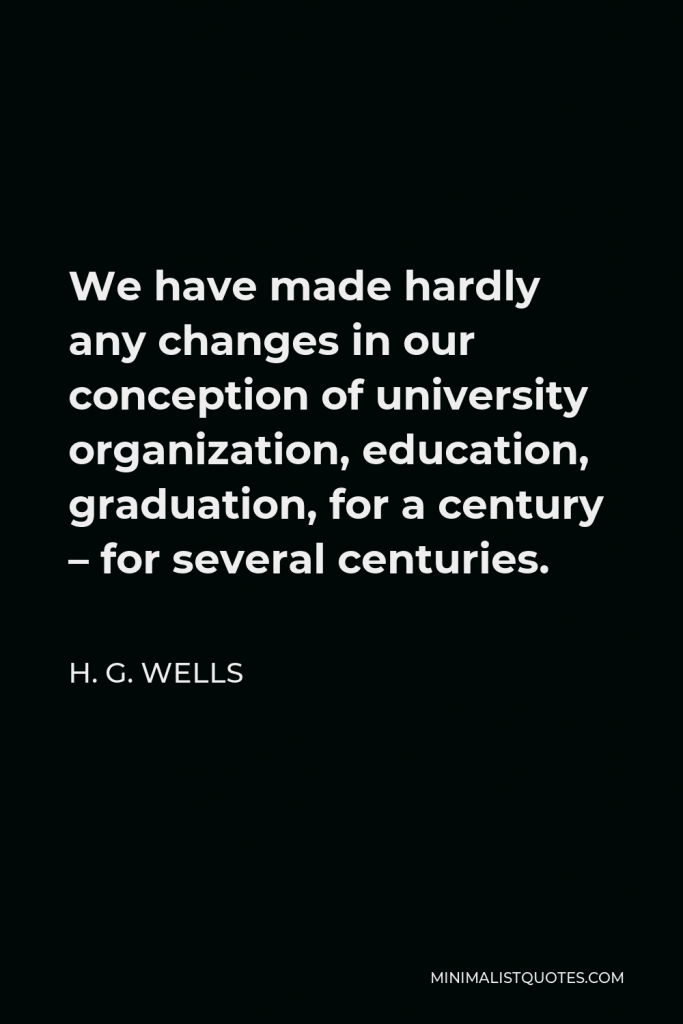

We have made hardly any changes in our conception of university organization, education, graduation, for a century – for several centuries.
H. G. WELLS -







The past is but the past of a beginning.
H. G. WELLS -





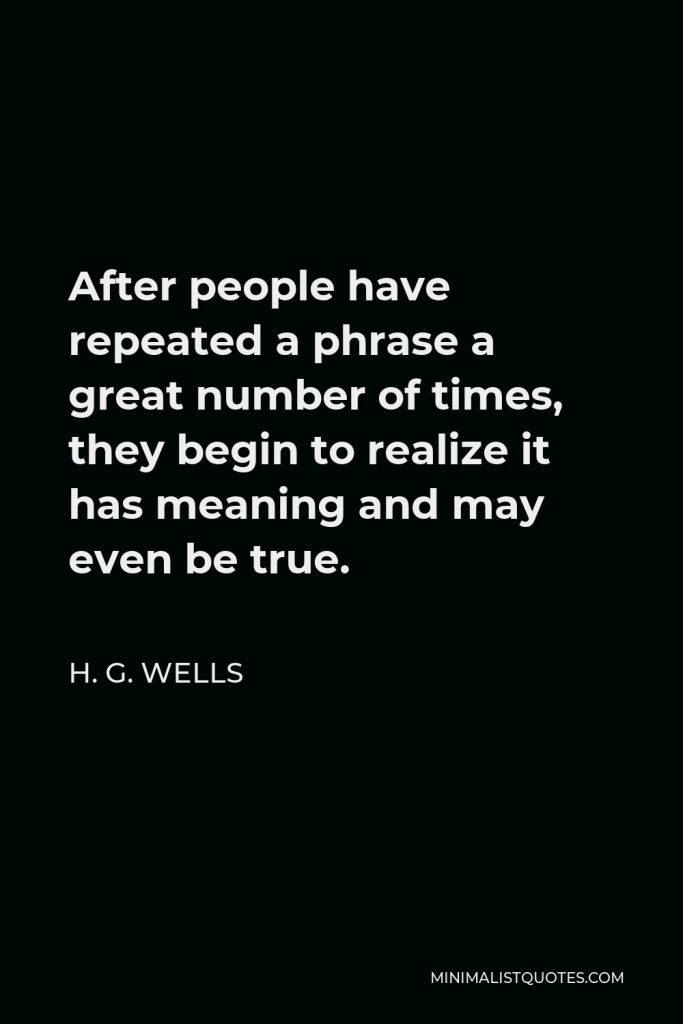

After people have repeated a phrase a great number of times, they begin to realize it has meaning and may even be true.
H. G. WELLS -





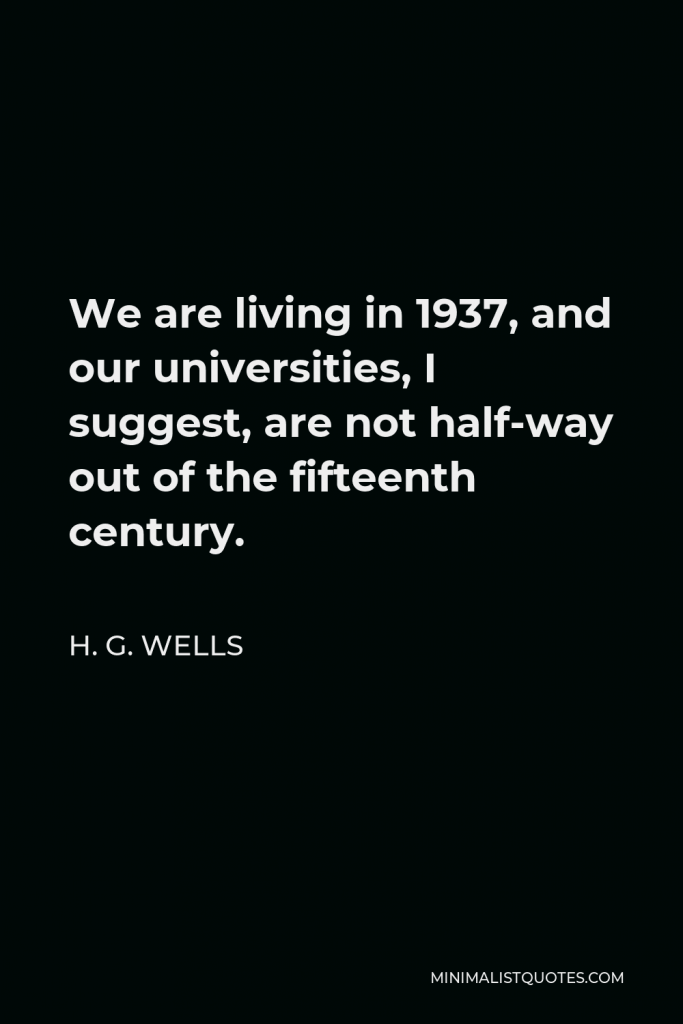

We are living in 1937, and our universities, I suggest, are not half-way out of the fifteenth century.
H. G. WELLS
